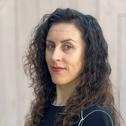Organon makes women’s health a priority

Simon Nicholson tells us how Organon, a new women’s healthcare company, is working to effect positive change globally by listening to women about their health care needs and allowing that information to drive their business development strategy.
As Merck looked to expand its portfolio, it was determined that there’s a huge problem and need, particularly in women’s health. To be able to focus on women’s health at the scale that was necessary, Nicholson says, they wanted to create a standalone company – that’s when Organon was born.
“The company exists to create a better and healthier every day for every woman. Now, to achieve that is not simple,” says Nicholson.
Where to start
Nicholson is the director of the UK & EUI Cluster at Organon, which spans 11 countries. He joined the pharmaceutical industry over 20 years ago, and over the last 10 years has held a variety of leadership positions in MSD-UK. He has worked on launching Organon for the last 18 months, and calls the company a “start-up” with a “really diverse, great-valued portfolio.”
“Whilst we’ve taken some really amazing people, processes, [and] approaches from MSD and Merck, we’re essentially considering how can we build a company, which is relevant for the Organon mission as opposed to the MSD Merck mission? That start-up mentality, but on a global scale.
“In many global pharmaceutical companies, the breadth of the portfolio is a huge strength of the organisation, that diversity. But it also means you have to make decisions and tradeoffs, whether it’s resource deployment or share of management attention,” says Nicholson.
“We’ve taken the decision to dedicate…our resource deployment to that mission. This separation essentially allows us to be ruthlessly determined to deliver against that one focused mission.”
Organon now operates in 58 countries, but has a presence in 140 and was launched on the stock exchange on June 3rd.
Listening to Learn
Organon has touched ground in a few areas, including therapeutics and disease areas, but is looking to expand its portfolio based on women’s needs both throughout their lifetime and in areas that disproportionately affect women.
“If you’re a woman, you’re more likely to need more GP appointments before you get your first diagnosis. Women are more likely to be disproportionately impacted by COVID, and I don’t mean the virus itself, but the impact COVID has had on society globally,” says Nicholson.
Learning about women’s health needs helps to guide Organon’s business strategy, and often the best way to learn is to listen. Therefore, Organon has made listening to women its main focus.
“When we launched the company, we kicked off a large global listening exercise. We collected over 200 quotes from women around the world who had something to say about the unmet need in healthcare delivery for women or health policy rating for women,” Nicholson states.
As a global listening exercise, it’s early, says Nicholson, but they’re learning the health needs of women vary throughout their life, so the operations need to be tailored for what women experience from birth through to the end of life. There’s also a large focus on the importance of preventative care.
“People are telling us that we need to be more proactive around preventative health care. Not purely focused on the therapeutic or the medicine, but actually thinking about how we can engage with women at all stages of life course to prevent ill health,” Nicholson says.
Power in Diversity
Not only are they listening to women, but Organon prides itself on having a majority female leadership team. Nicholson says the gender balance is really important, particularly as a company that focuses on women’s health.
“We have some core values at Organon. One of them is we all belong. It’s all about that sense of diversity and inclusion, and it doesn’t matter what background you come from. It doesn’t matter where you come from in the world,” Nicholson states.
“Our global Board of Directors is 70% female – more than any other healthcare company in the Fortune 500. For the organisation that I lead specifically, 50% of the leadership team for my cluster is female.”
Nicholson’s cluster spans the UK, Norway, Sweden, Finland, Denmark, Iceland, Israel, and the Baltic Nations, and he says they consciously considered the gender makeup of the organisation.
“As we were building Organon over the last 18 months, that diversity with complexity, you can just imagine the complex supply chain that exists across the organisation, the complex operating model. Now that we’ve launched, we exist, and are on our mission, that diversity becomes our superpower,” says Nicholson.
“Within my direct team, I can draw upon experiences from colleagues across that geographic diversity. We can empathise and understand the needs of women across a diverse range of cultures, geographies, and backgrounds. At a time when the world is really considering what diversity means and what fairness and equality really means, it is in [Organon’s] DNA that we all belong.”
What’s Next?
Learning from women in the public sphere, female policy makers, women in government, and health care systems has guided Organon to where it should perform research and informed its business development strategy.
“We’ve been inundated by other organisations that have a particular passion about women, whether it’s women’s health or broader issues that impact women. We are talking to other companies on a daily basis,” says Nicholson. “We’ll go where that unmet need is.”
Organon recently announced the acquisition of Alydia Health, a company focused on supporting women with postpartum hemorrhage.
“That gave us a huge amount of confidence. Our CEO Kevin Ali talked about the future plans to diversify the portfolio and not be limited to medicine, but actually look at diagnostics, devices, and services as well,” said Nicholson. “That ultimately will contribute to the overall mission of the healthier every day for every woman.”
“We’re just relentlessly passionate about making a difference for women across the world and there’s a huge need for that.”
About the interviewee
 Simon Nicholson is the director of the UK & EUI Cluster at Organon, which spans 11 countries. He joined the pharmaceutical industry over 20 years ago, and over the last 10 years has held a variety of leadership positions in MSD-UK. He has worked on launching Organon for the last 18 months.
Simon Nicholson is the director of the UK & EUI Cluster at Organon, which spans 11 countries. He joined the pharmaceutical industry over 20 years ago, and over the last 10 years has held a variety of leadership positions in MSD-UK. He has worked on launching Organon for the last 18 months.











